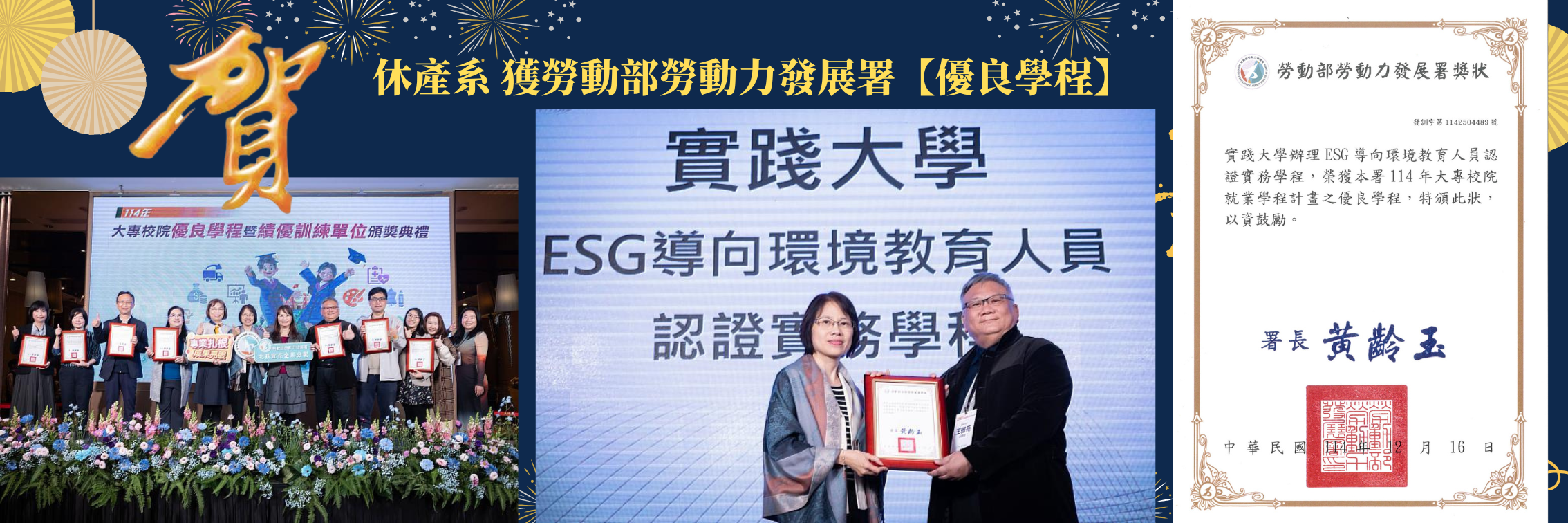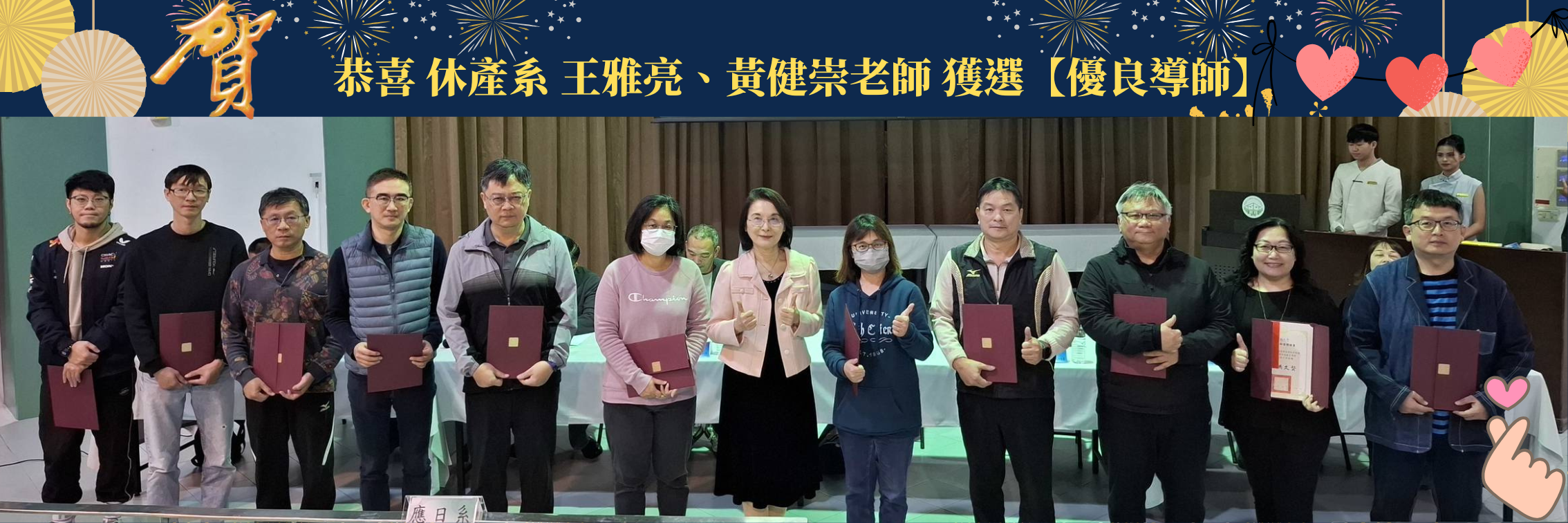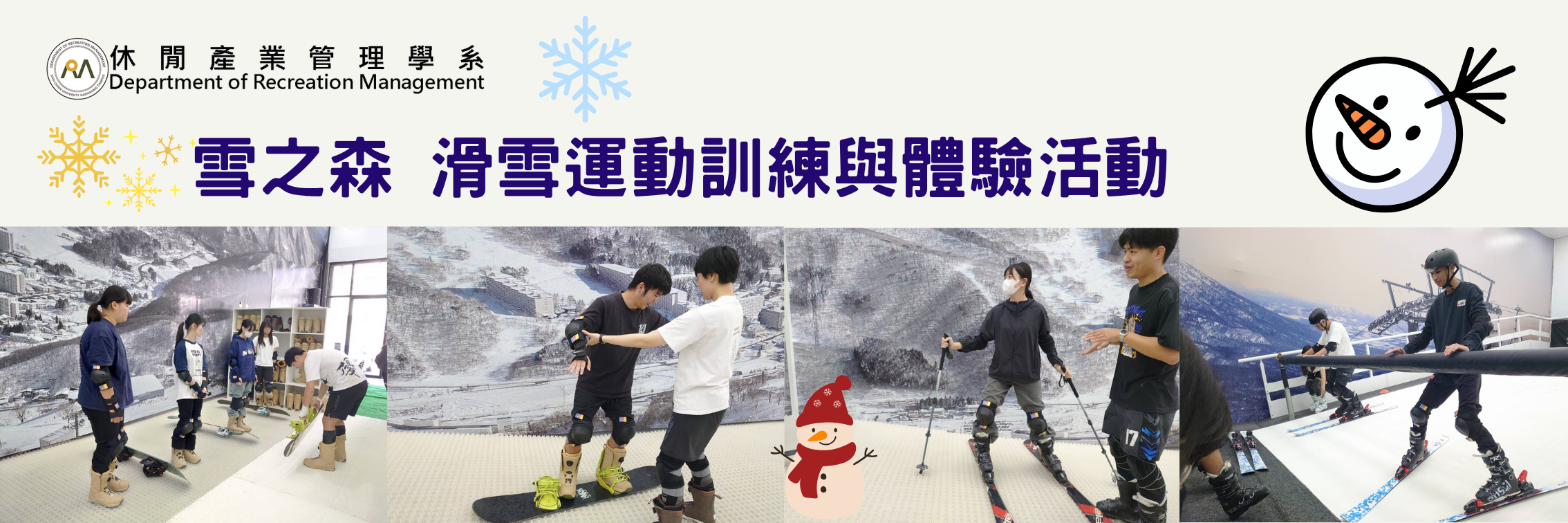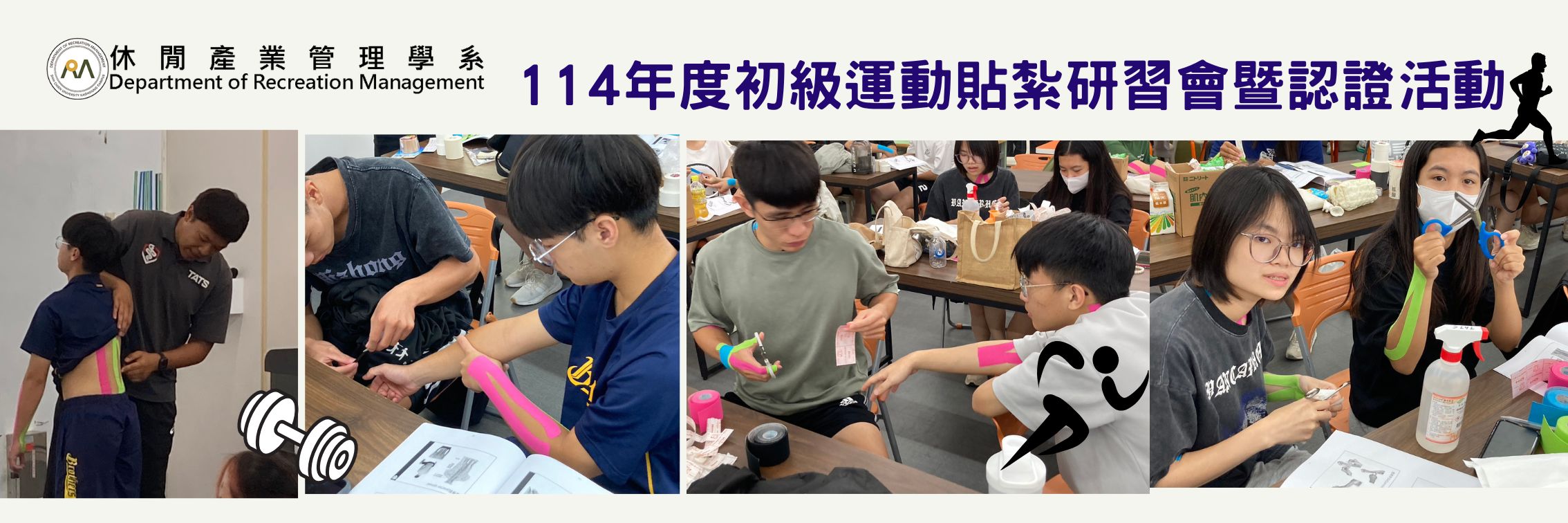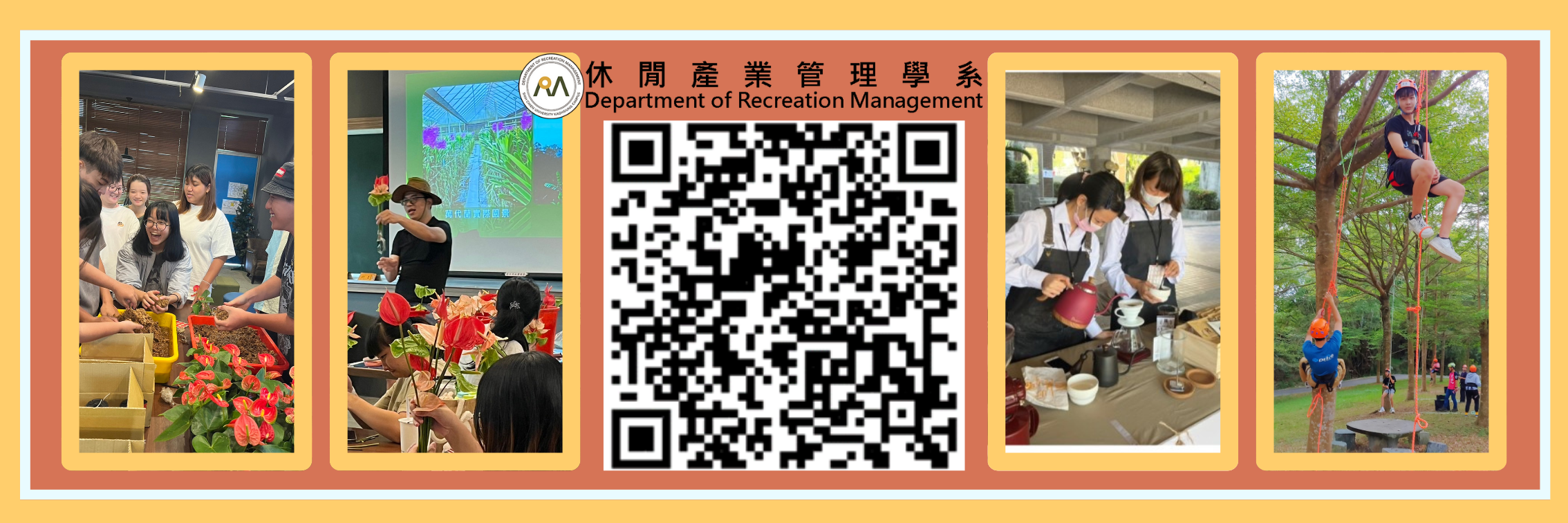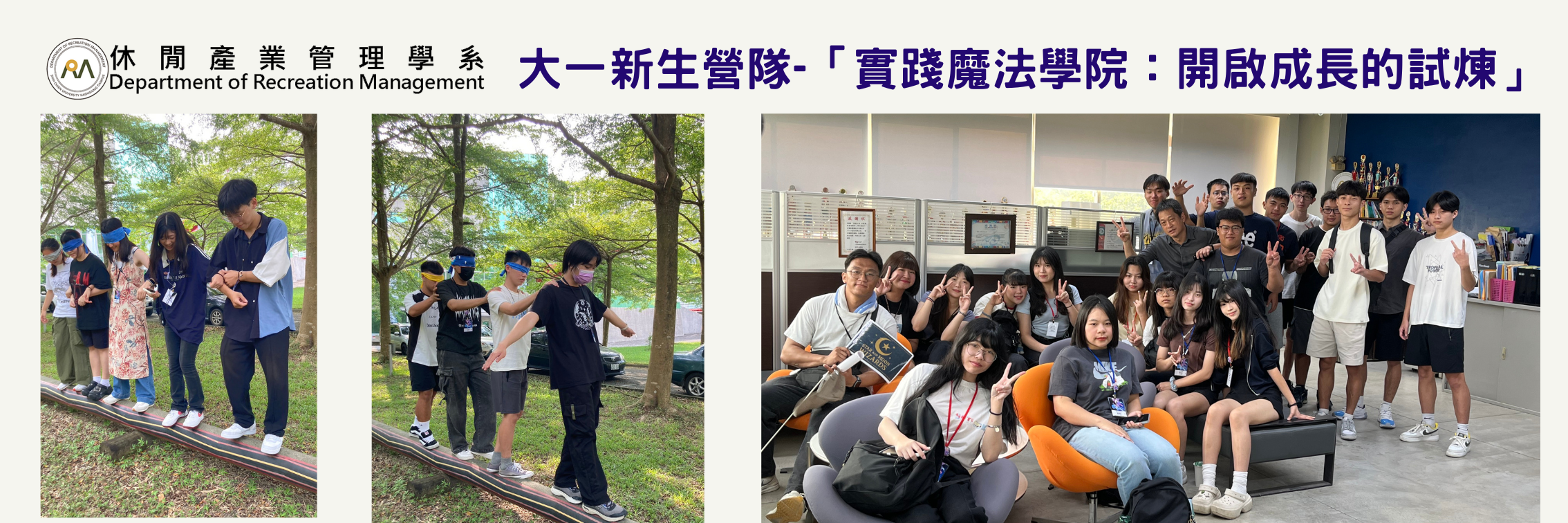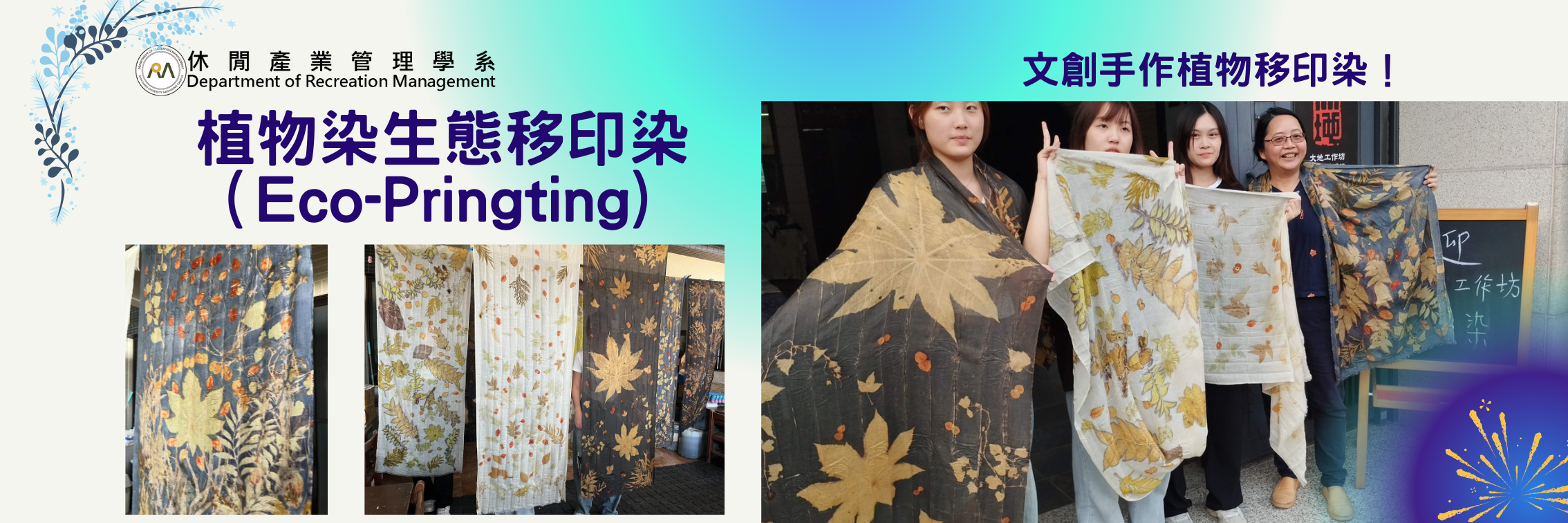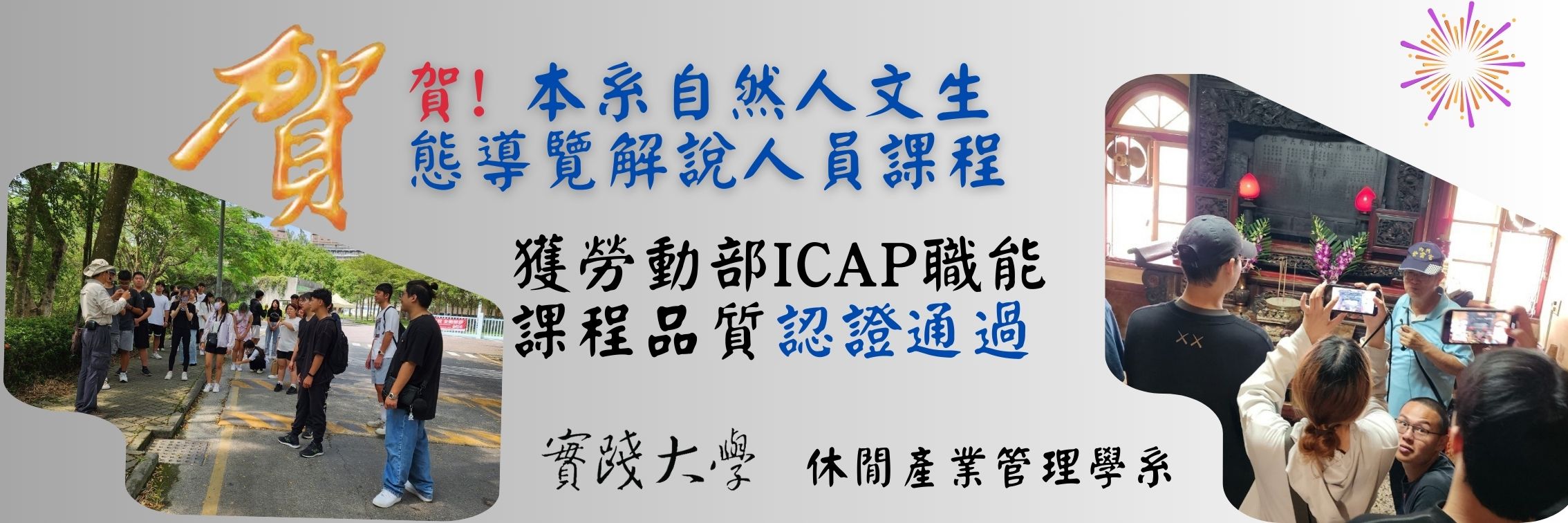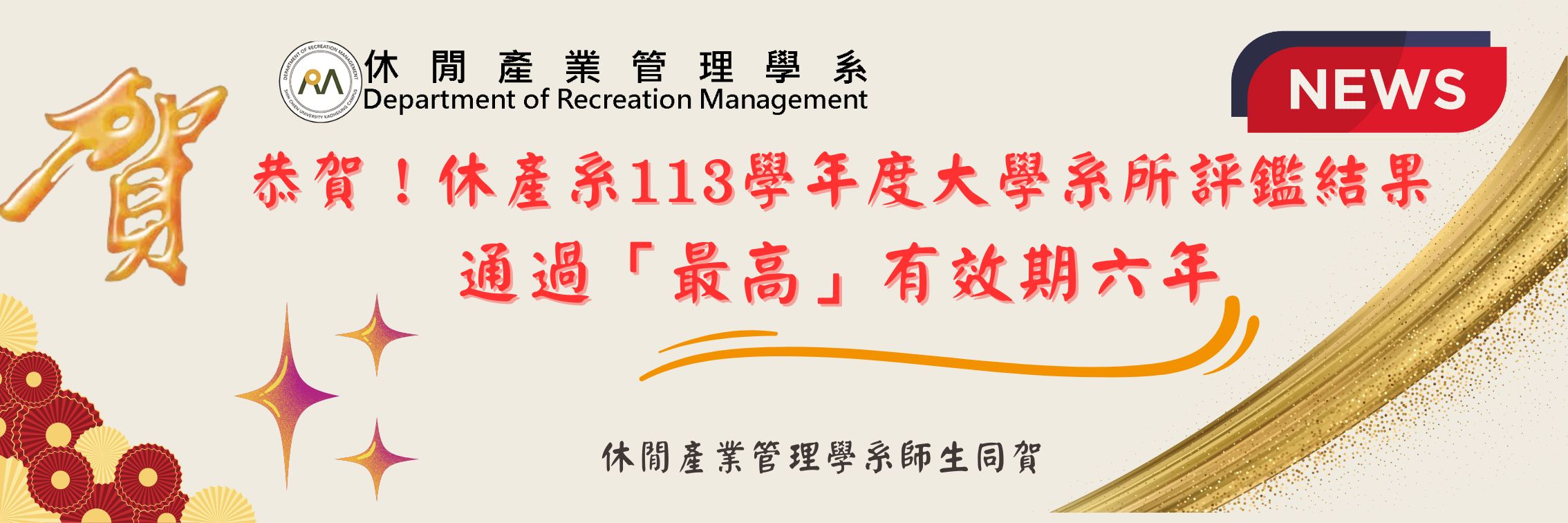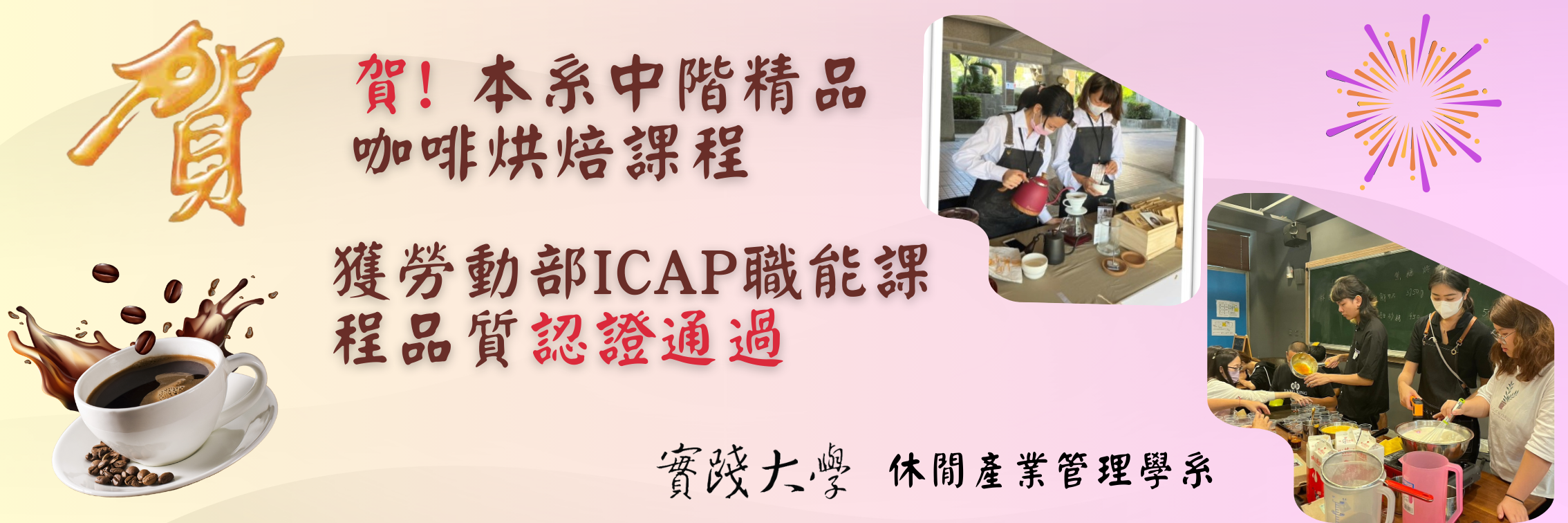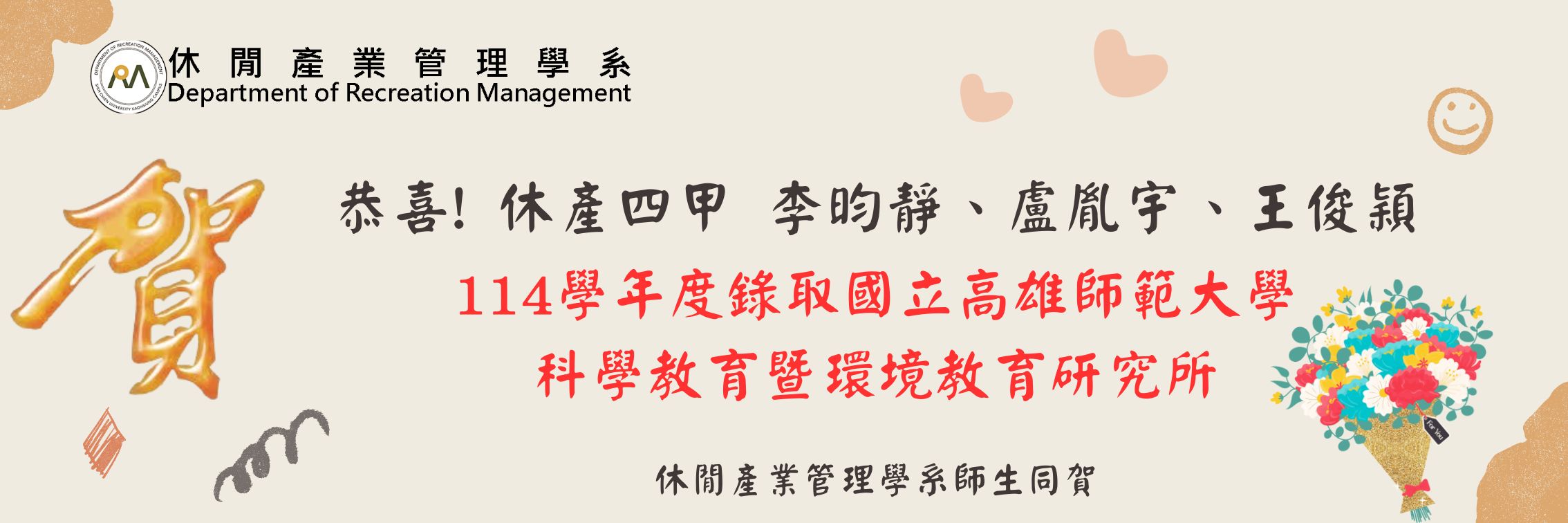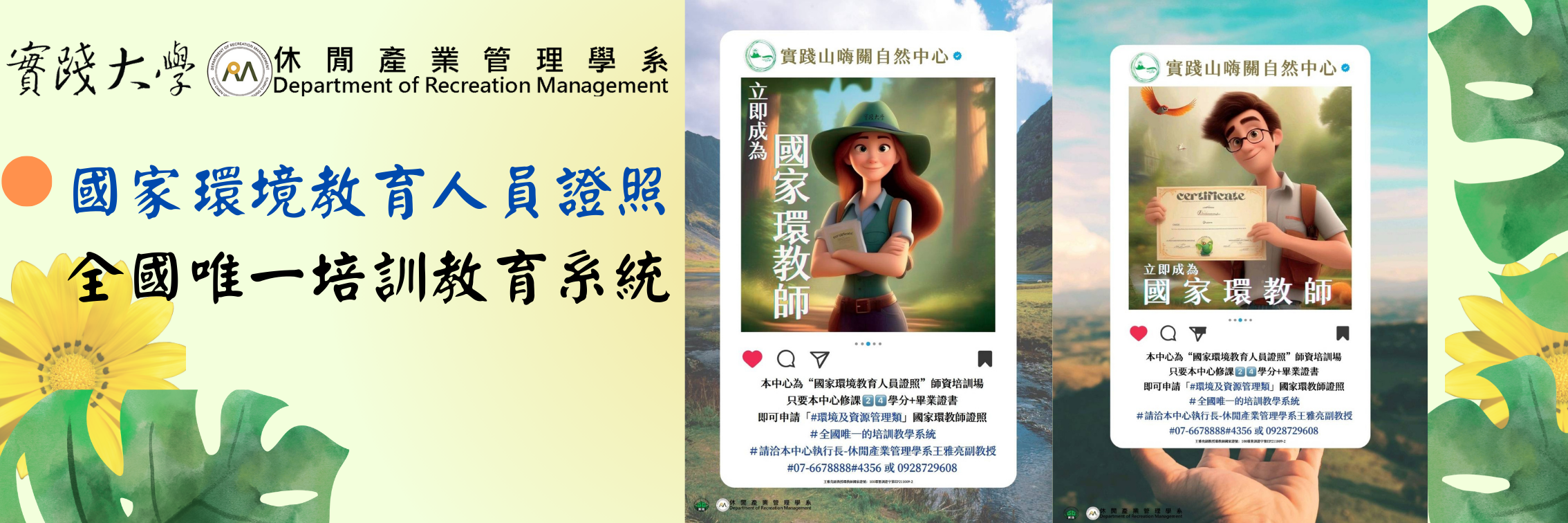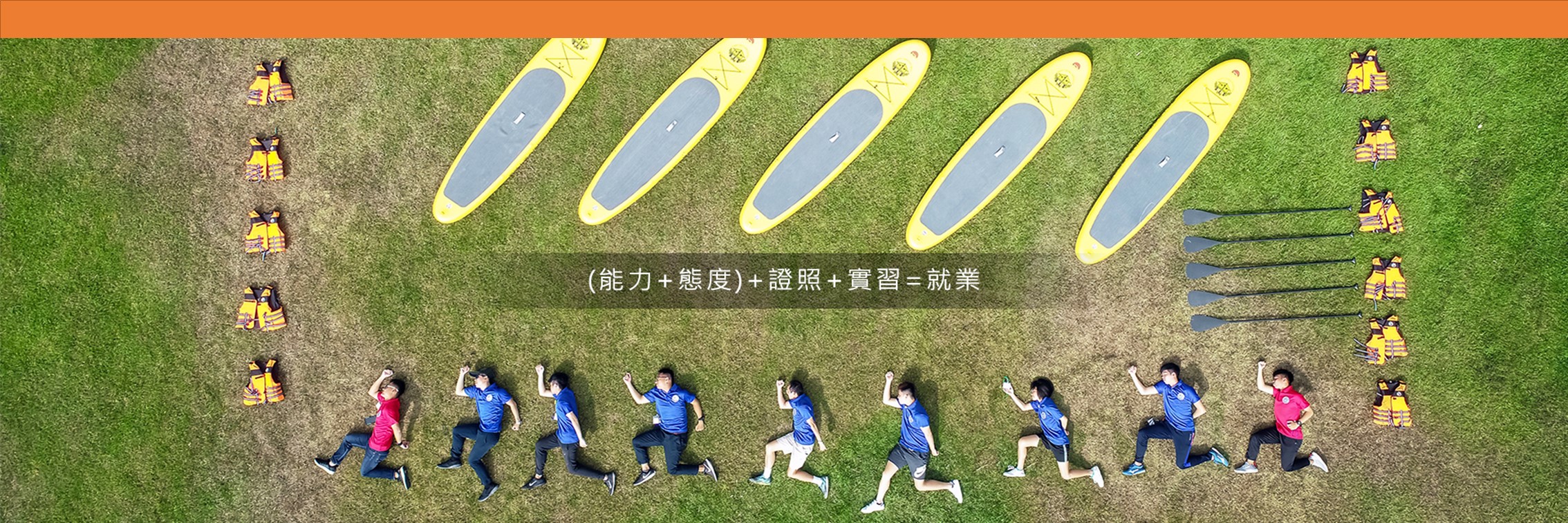Department of Recreation Management
Introduction
The Department of Recreation Management (DRM) was established in 1994 on the Kaoshiung Campus, Shih Chien University. The DRM is a young and yet robust institute in recreation studies, encompassing entrepreneurship, marketing, leisure, sports, events and environmental education. Our program emphasizes the delivery of the-state-of-the-art knowledge in management, finance, humanities and environment. The DRM provides students with comprehensive learning opportunities in leisure and sport. Students are well exposed to a variety of professional skills and academic knowledge through a diverse curriculum featuring classroom instruction, hands-on experience and service learning.
The DRM is an expert in the contemporary recreation, leisure and sport sectors. The DRM not only offers a professional education for students targeted to intensive practical knowledge and skills, but also cultivate their spirits of work ethics, social responsibilities and sustainability. We promote senses of responsibility and empathy, and encourage our students to be dynamic. Most of our graduates experience smooth transitions into either jobs or further studies as soon as they leave the University. Proudly, our alumni have always enjoyed reputations as favourable graduates by employers in Taiwan, Singapore, Vietnam and Japan, as well as other institutes.
The Education Goals
1. Inspire scientific thinking and innovative ideas.
2. Cultivate professional knowledge and skills in the leisure and sport fields.
3. Explore strengths in discerning trends and entrepreneurial opportunities in the leisure and sport sectors.
4. Forge adequate knowledge, skills and attitude for international employment mobility.
5. Enhance the sense of social responsibilities, work ethics and sustainability.
Elements of Core Competency
1. Planning and management capacity for leisure and sport sectors
2. IT capacity for enhancing the efficiency of leisure and sport sectors
3. Empathetic capacity for differentiating multicultural groups’ leisure, sport and health needs.
4. Service capacity for developing local culture and community.
5. Technical and dynamic capacity for employment in the leisure and sport sectors.
6. International mobility in workplaces of leisure and sport sectors.
Modules & Employment Programs
Our courses include two modules and two employment programs. Students can select Leisure, Cultural and Creative Planning Module (LCCPM) or Recreation and Sports Planning Module (RSPM) as their major academic module. In the fourth year, students allow to select Coffee Making Employment Program (CMEP) or Environmental Education Employment Program (EEEP) to enhance their employability.



Curriculum
►113 academic year’s four-year course plan
►112 academic year’s four-year course plan
►111 academic year’s four-year course plan
►110 academic year’s four-year course plan
►109 academic year’s four-year course plan
►108 academic year’s four-year course plan
Career Paths
Our program helps offer the graduates with a smooth path to an interesting and productive career in recreation and leisure-related sectors. Careers, which our recreation management students can look forward to, involve:
□ Leisure entrepreneurial operations: operators or self-employed in the sectors of homestay, leisure program and facility provision, leisure farm, art performance, crafts, cultural events and recreation-oriented software design.
□ Recreation management: serve as a service provider, staff or coordinator in accommodation sectors and resorts, leisure farms, theatres, starred-rated hotels, and hospitality sector.
□ Recreation planning: as a travel advisor, itineraryplanner or interpreter in museums and recreational sites.
□ Sport coaching: trainer or coach in fitness club, health centres, golfing, lifeguarding, diving, trafficking, climbing, as well as sport judges.
□ Sport marketing: representative for sport sponsorship, promotion, and sales of sport and fitness equipment.
Contact Information
Address: 200 University Road, Neimen, Kaohsiung 84550 Taiwan, R.O.C.
Tel: 886-7-6678888 ext. 4350-4354
Email: ann@g2.usc.edu.tw

